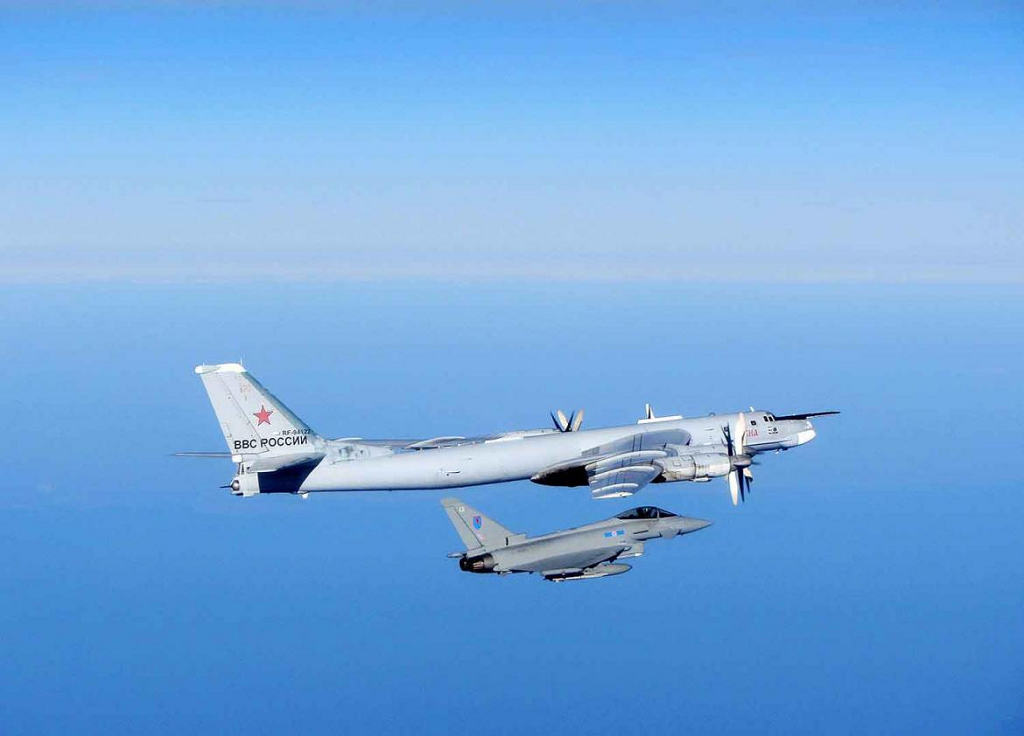Nuclear-capable Russian bombers in European airspace, NATO intercepts, a foreign submarine in Swedish waters — the fall-out from the Ukraine crisis feels like a return to Cold War days.
NATO has intercepted Russian aircraft on more than 100 occasions so far this year, three times more than all 2013, its new head Jens Stoltenberg said on Thursday.
Earlier this week, NATO tracked and intercepted four groups of Russian warplanes, including long-range TU-95 strategic bombers and sophisticated fighters “conducting significant military manoeuvres” over the Baltic Sea, North Sea/Atlantic Ocean and the Black Sea.
A few days earlier, a Russian Ilyushin IL-20 spy plane which took off from the Russian Baltic coast enclave of Kaliningrad briefly crossed into Estonian airspace, all part of a pattern of increased testing of NATO’s eastern flank.
The US-led military alliance has deployed more aircraft, ships and personnel, aiming especially to reassure newer members such as the Baltic states and Poland, once ruled from Moscow, who have been unnerved by Russia’s intervention in Ukraine.
NATO has to send “a very clear message” to Moscow, Stoltenberg said.
– Russia asserts itself –
Viewed from Moscow, there is no cause for concern — Russia is simply asserting its position after long years of decline and NATO and the West had better get used to it.
Brooks Tigner, NATO specialist for IHS Jane’s Defence, said “these kind of provocative actions have been going on ever since the Cold War stopped … but it wasn’t reported on.”
Now the Russians are putting up more complex formations — some of this week’s flights involved eight aircraft — and flying closer to major population centres, Tigner said.
– ‘Game of brinkmanship’ –
Other analysts said the increased activity recalled Cold War days when both sides probed and tested each other in sometimes risky manoeuvres.
In this case, Russia wants to get the West to reverse the tough economic sanctions imposed over the Ukraine crisis and which have caused real pain to an already struggling economy, Felguenhauer said.
To do that, it aims to “frighten the Europeans, to make them believe that Russia is ready to do anything to get what it wants,” he added.
That rings true, said Igor Sutyagin at RUSI in London, recalling that President Vladimir Putin had only recently warned “that Russia was heading towards a confrontation with the West”.
The message from Moscow, said Sutyagin, is clear: “Look you had better be a friend; if you don’t, this is what you will have.”
It is a strategy, not far removed from the one that dominated the mid-20th century, designed to “intimidate the West into having a partnership with Russia” on its own terms.

COMMENTS
Please let us know if you're having issues with commenting.